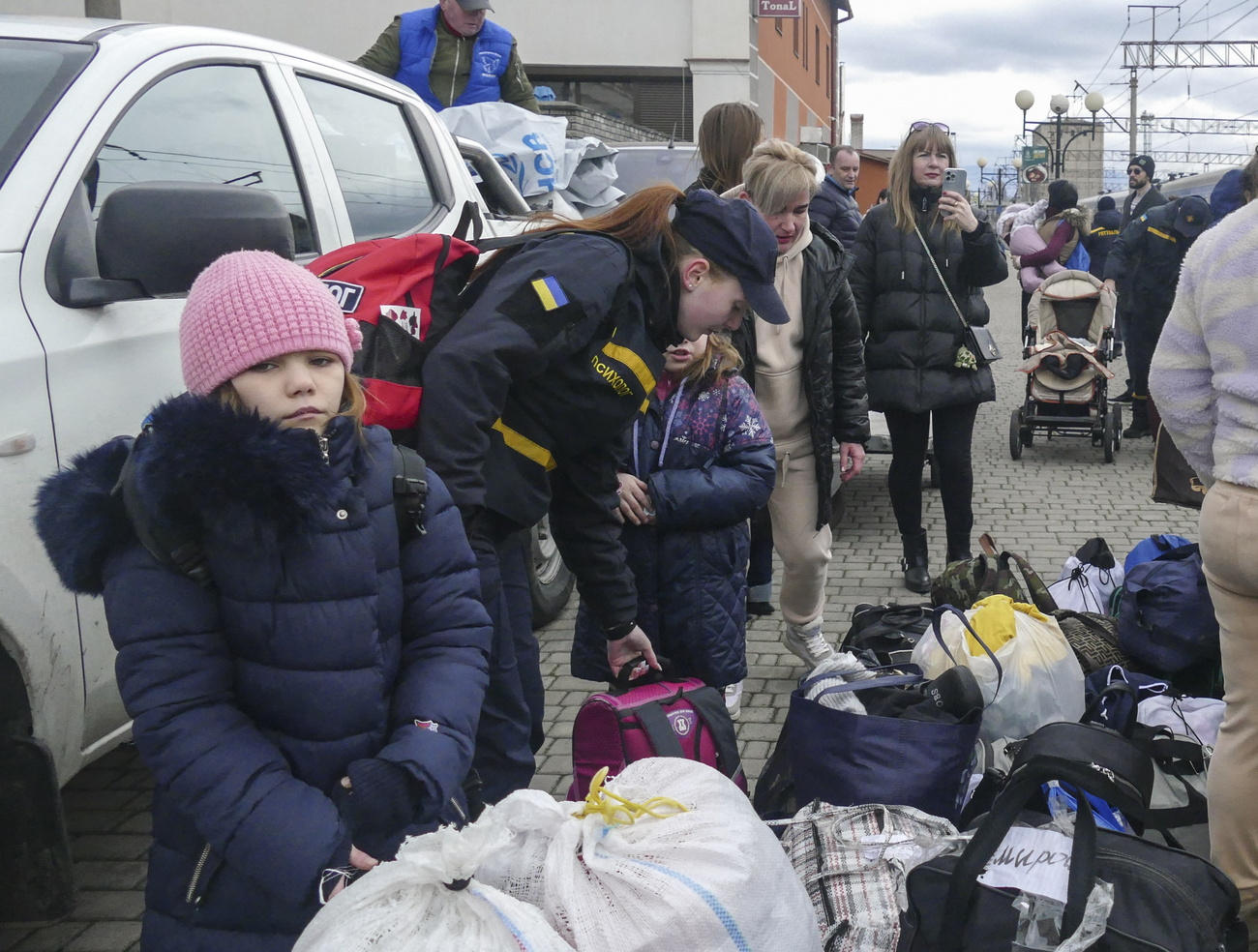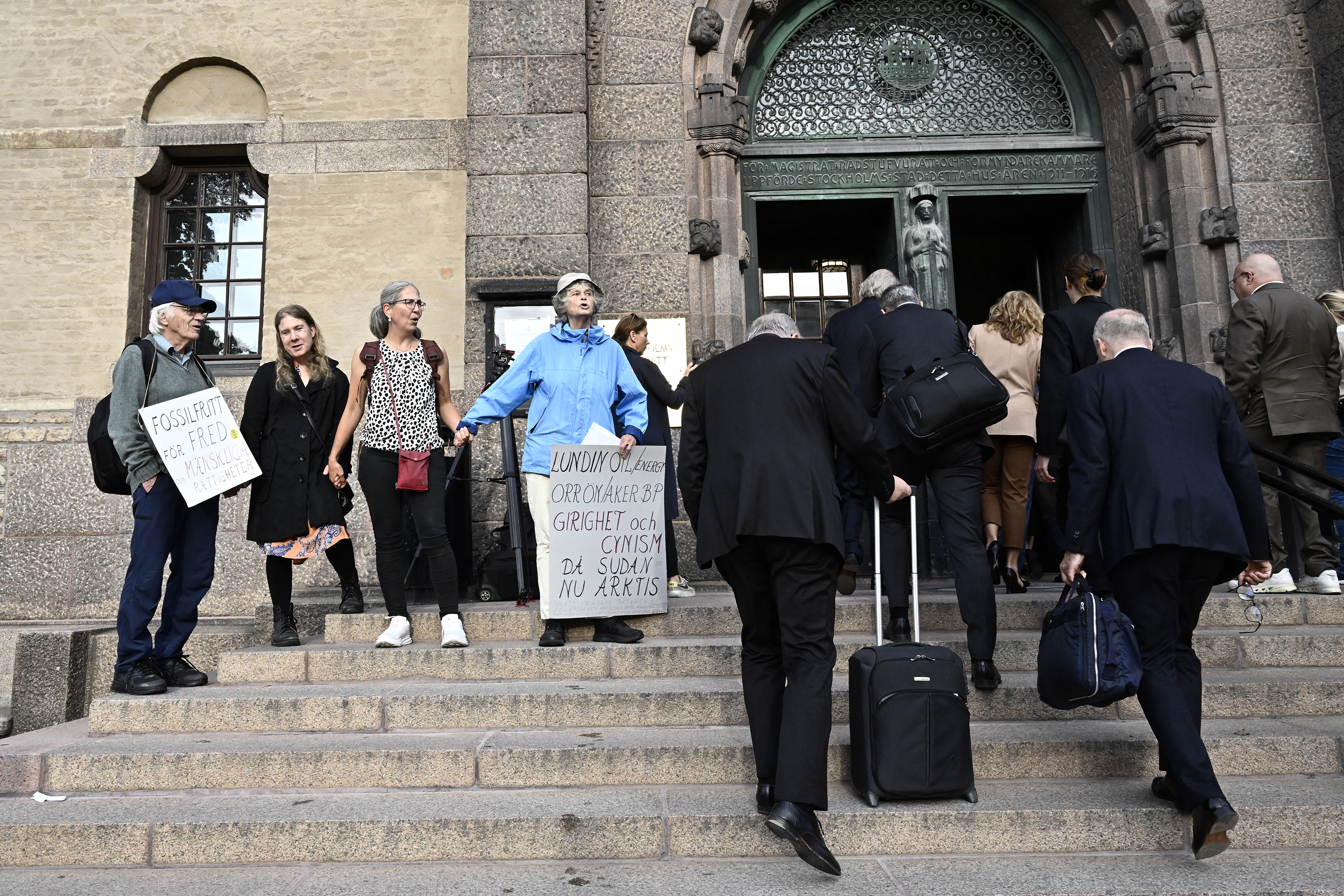
Sperisen case in Switzerland a ‘legacy of the dirty war in Guatemala’

Dual Swiss-Guatemalan national Erwin Sperisen is appearing in court for the fourth time in Geneva in a dispute over the facts of seven murders that took place in a Guatemalan prison in 2006. What is at stake in this highly unusual case in Switzerland?
In Switzerland, 54-year-old Sperisen continues to maintain his innocence and rail against the prosecution. The former head of the Guatemalan national police force insists that biased left-wing magistrates are handling his case in Geneva on the basis of manufactured evidence.
The allegations of the accused are now front and centre again, thanks to the announcement of a libel suit in Geneva against the prosecutor in the case, Yves Bertossa.
This time it is not Sperisen himself who is bringing the legal action but three former government officials in Guatemala: Alejandro Giammattei, a former head of the Guatemalan prison system, Carlos Vielmann, a former interior minister, and Javier Figueroa, who was Sperisen’s second-in-command in the country’s police force. These men are implicated in the events for which Sperisen is standing trial in Switzerland (see infobox). The three have been tried and acquitted in other cases.
Meanwhile a documentary film has been released in Guatemala under the title Caso Sperisen: Una vergüenza judicial (The Sperisen Case: A judicial scandal), in which the former police chief and others denounce what they call anomalies in the Swiss court system.
Why is the case against Sperisen in Switzerland such an important issue for Guatemala? And how is it being perceived in the Central American country?
SWI swissinfo.ch spoke to Sandino Asturias, head of the Centre for Guatemala Studies or CEGExternal link.
SWI swissinfo.ch: Who was this man, Erwin Sperisen, in Guatemala 20 years ago?
Sandino Asturias: He was a firefighter, actually, with no police experience, but in 2004, at the age of 34, he was appointed head of the Guatemalan national police, a force made up of about 20,000 men.
Sperisen was a friend of leading business figures and people in government. Soon afterwards, evidence started coming to light that the police force was engaging in “social cleansing”.
In Guatemala, people have been tried and convicted for these crimes. Sperisen was linked to extra-judicial executions following forcible evictions from a farm (2004), the hunting down of three prisoners from El Infiernito prison (2005), an operation in the prison at Pavón during which seven inmates were killed (2006), and the deaths of three parliamentarians from El Salvador who were visiting Guatemala (2007).
When four of his men, who were accused of the murder of the Salvadorians, were killed in prison, Sperisen fled to Geneva, where his father was Guatemala’s ambassador to the World Trade Organisation (WTO).

SWI: In Switzerland in 2007, there was a parliamentary interventionExternal link asking what Switzerland could do to end human rights violations in Guatemala by specifically mentioning Sperisen. Two NGOs called for Sperisen to be brought to trial. What was going on in the justice system in Guatemala?
S.A.: The government of Guatemala and the United Nations set up the International Commission against Impunity in Guatemala (Comisión Internacional contra la Impunidad en Guatemala, CICIG), with financial assistance from more than 15 countries, including Switzerland.
This was to assist public prosecutors in investigating the existence of illegal security forces and their links to government officials, and to work with the state to dismantle these police forces operating outside the law.
In 2010 Guatemala issued an international arrest warrant for Sperisen and 18 other officials. Sperisen was apprehended in 2012 in Geneva. Being a Swiss citizen, he could not be extradited. So he was tried in Geneva. In 2014 he was given a sentence of life imprisonment.
A series of appeals has meant that the case is still not closed, while Sperisen has spent nine years in jail.

More
Our weekly newsletter on foreign affairs
SpSWI: Sperisen was convicted of taking part in extra-judicial executions. What is the historical context of all this?
S.A.: For over three decades, the government in power practised a kind of state terrorism. It committed genocide and crimes against humanity to snuff out rebellion and maintain economic power in the hands of a few.
After the peace agreement of 1996, some of these crimes were prosecuted in a rather half-hearted manner. But the economic elite in the country, and ultimately the constitutional court, prevented the main perpetrator, General Efraín Ríos Montt, from being punished for genocide.
In this way, the setup familiar from the years of oppression continued in peacetime, with new security forces that were able to go on torturing and murdering with impunity.
That’s the true legacy of the dirty war – this pattern of criminal behaviour on the part of state agencies. And that is also how parallel structures grew out of the national police force.
SWI: Sperisen maintains that the evidence given by Guatemala to Switzerland had been manipulated against him – they were just the result of political persecution. What do you think of these claims?
S.A.: The investigation implicating him was carried out by the Guatemalan public prosecutor’s office with the assistance of the CICIG to uncover extra-judicial executions in the prison system.
In the case of the seven murders in Pavón, there is clear evidence that these prisoners were undressed and executed and then dressed again to manipulate the crime scene. There were even executions of members of the illegal police force who were working for Sperisen. These crimes were shown to have happened, both in Guatemala and in Switzerland.
Sperisen can hardly portray himself as a victim of political persecution, since the 70-year rule of his political masters in Guatemala only ended in 2024.
This is an attempt to discredit witnesses and judges and manipulate public opinion in Guatemala. There is now a documentary film being shown in cinemas, where Sperisen is portrayed as a victim of the Swiss justice system. That’s part of the strategy of the economic elite to defend its position. We’ve long been familiarExternal link with this in Guatemala.

Sie werfen der Elite GescSWI: You accuse Guatemala’s elite of historical revisionism. Is Sperisen really an important part of that strategy?
S.A.: It’s not really a matter of the person, but the method. This elite, which believes it has a divine right to rule, protects the impunity of its own.
Many of the elite were involved in supporting the genocide or in starting the groups created for the purpose of “social cleansing”.
Events are repeating themselves. When the dictator Efraín Ríos Montt was condemned for turning the country into a battlefield in order to overthrow the guerrilla uprising, the elite claimed that there had been no genocide in Guatemala.
The aim has always been to justify the strategies of oppression.
SWI: The Sperisen case in Switzerland does not fall under universal jurisdiction. But do you see an international justice aspect to it?
S.A.: I do. The accused has made the case an international one with his defence strategy. If he had been brought to trial in Guatemala, it would have been just one more prosecution – and one more conviction – among the dozens that have happened.
Now a Swiss citizen is on trial in Switzerland for crimes committed in Guatemala. This may not be a case of universal jurisdiction, but it is a case of crimes against humanity.
Many things about this case are open to question, but there can be no doubt that in Guatemala there were extra-judicial executions.
These other government officials who are accusing the Swiss public prosecutor of libel are just interested in saving their own skin, since this case could work against them.
In 2014, Erwin Sperisen, the former head of the national police in Guatemala, and a dual Swiss-Guatemalan citizen, was found guilty by a court in Geneva of the murder of seven prisoners during the storming of the Pavón prison in Guatemala in 2006. In one of the cases, he was identified as the main culprit.
In 2015 the sentence was confirmed by the appeal court of canton Geneva, but in June 2017 it was quashed by the Federal Court.
The Federal Court found that the prisoners had indeed been murdered in Pavón by police action, but also found that there had been procedural anomalies at the trial and sent the case back to the appeal court in Geneva.
In 2018 the appeal court reduced Sperisen’s sentence, finding him guilty only of complicity in the Pavón murders. It sentenced Sperisen to 15 years in prison.
Sperisen’s legal team appealed this decision, and in November 2019 the Federal Court granted the appeal in part. The accused appealed this decision again, demanding that the presiding judge of the cantonal appeal court recuse herself.
The Federal Court rejected this application. Sperisen’s legal team took the matter to the European Court of Human Rights (ECHR).
In June 2023 the ECHR found that Sperisen’s right to a fair trial had been compromised under the terms of Article 6, paragraph 1 of the European Human Rights Convention. The presiding judge at the appeal court was found to have been biased in her response to a request for Sperisen’s conditional release.
All other points of the appeal from Sperisen’s legal team were rejectedExternal link by the European court.
The Geneva appeal court is now trying the Sperisen case for the fourth time. The hearing is scheduled to last until September 13.
Source: humanrights.chExternal link, Federal Court and ECHR
Edited by Marc Leutenegger. Adapted from German by Terence MacNamee/gw
Read our article on the principle of universal jurisdiction, which is once again gaining in importance:

More
What does the renaissance of universal jurisdiction mean for global justice?

In compliance with the JTI standards
More: SWI swissinfo.ch certified by the Journalism Trust Initiative




























You can find an overview of ongoing debates with our journalists here . Please join us!
If you want to start a conversation about a topic raised in this article or want to report factual errors, email us at english@swissinfo.ch.